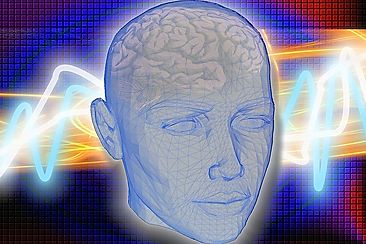Neuropsychotherapy is a holistic and multidisciplinary approach to therapy combining neuropsychological knowledge with recent advances in psychotherapy and neuroscience. Admittedly it is quite a mouthful and a little confusing for those entering from an unfamiliar perspective. However, what this means in layman's terms is that neuropsychotherapy focusses on the mind, body, social interaction and the environment of a client with a particular reference to neuroscientific research.
 Advancements in Neuropsychotherapy
Advancements in NeuropsychotherapyWhile the field of contemporary neuropsychotherapy seems to be getting much attention these days, it is not by any means a new field of psychology. Particularly over the past twenty years, the field has been advancing dramatically with each new neuroscience breakthrough. It is undoubtedly different from other psychotherapeutic models, and has been proven to be a more efficient form of psychotherapy when grounded in a neuroscientific approach.
Sometimes it is easy to forget just how amazing our brains are. Since the 1920s, research has shown that our brain network is beautifully responsive to our social environment. What this means from a neuropsychotherapy viewpoint is that repetitive negative or stressful experiences have a tendency to reinforce patterns of negative behaviour, thoughts, and feelings. Knowing this means we have the potential to change these negative patterns with new more positive repetitive experiences to bring about entirely new patterns.
Behavioural change is, and will continue to be, at the foreground of this innovative therapy.
 Think of it like this. If someone’s life experiences has been wholly negative, then their brain is trained to see negativity and despair all around. If someone comes from the opposite end of the scale originating from a positive and supportive environment, then any negativity becomes just another challenge in a series of problems. Through neuropyschotherapy, positive connections can be strengthened, and neural rewiring can occur. These positive changes to our brains can occur as long as there is a safe environment to do so.
Think of it like this. If someone’s life experiences has been wholly negative, then their brain is trained to see negativity and despair all around. If someone comes from the opposite end of the scale originating from a positive and supportive environment, then any negativity becomes just another challenge in a series of problems. Through neuropyschotherapy, positive connections can be strengthened, and neural rewiring can occur. These positive changes to our brains can occur as long as there is a safe environment to do so.
For those not familiar with this kind of psychotherapy, the study may seem a little broad or haphazard at first. However, it is the neuroscience research paired with an overall view of an individuals environment that can allow a neuropsychotherapist to understand the perspective of their client and make a real difference to their mental state. A healthy neural development gives clients the ability to not only survive what life throws at them but also teaches them to thrive in the best way possible.
Neuropsychotherapy has often been categorised as a consistency theory thanks to Klaus Grawe, who was a leading figure in the field. The theory maintains that general behaviour thrives on consistency.
As a whole, the study of neuropsychotherapy looks to shift the brain while focusing directly on concrete life experiences.
 The emphasis is on the whole person and the sum of their experiences rather than just the neuropsychological disturbances seen on the outskirts.
The emphasis is on the whole person and the sum of their experiences rather than just the neuropsychological disturbances seen on the outskirts.
And while the adage goes, you can’t teach an old dog new tricks, those in the neuropsychotherapy field understand that is entirely possible to teach them as many tricks as necessary to live a fulfilling life.
As we learn more about the brain, and more studies take place, the field can continue to make groundbreaking results to incite a theoretical and practical basis for client change and wellbeing. It is a very exciting time to be involved in this field of scientific study.